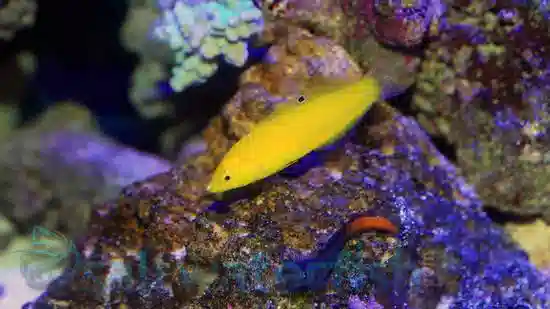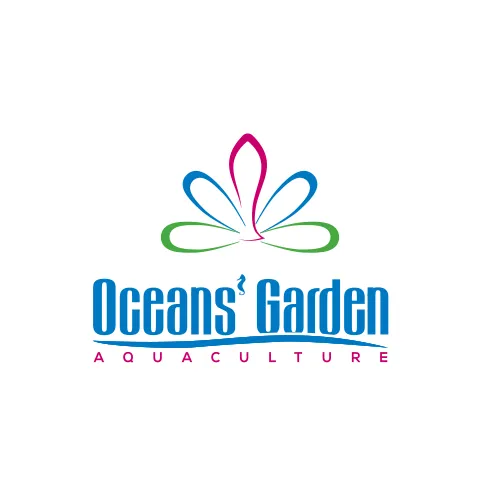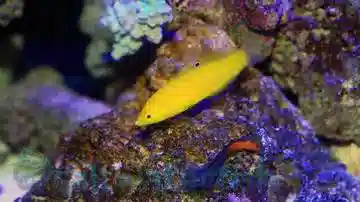Yellow Wrasse
Halichoeres chrysus
(11 Reviews)

Yellow Wrasse
Halichoeres chrysus
(11 Reviews)
{{ item.name }}
Size: {{ item.extra_field_3 }}
${{ getFormattedPrice(item.saleprice) }} ${{ getFormattedPrice(item.price) }}
To join the waiting list, click here
Free Shipping
With
$199.00
or more in Marine Life.
More details...
Yellow Wrasse Care Facts
| Care Level: | Moderate |
|---|---|
| Temperament: | Peaceful |
| Diet: | Carnivore |
| Reef Safe: | No |
| Minimum Tank Size: | 50 Gallons |
| Max Size: | 5 inches |
Keeping the Yellow Wrasse (Halichoeres chrysus) in Your Saltwater Aquarium
The Yellow Wrasse (Halichoeres chrysus) is a vibrant and captivating addition to your saltwater aquarium. In this informative and straightforward product description, we will provide essential information for both seasoned hobbyists and those considering the Yellow Wrasse for their marine tank. We'll cover crucial aspects such as the fish's habitat, reef compatibility, size, lifespan, dietary requirements in captivity, aquaculture availability, compatibility with other marine species, sexual dimorphism, coloration changes from juvenile to adult, temperament, tank requirements, and optimal water conditions. Additionally, we will list common names for this species, suggest suitable tankmates, and explain why purchasing the Yellow Wrasse from Saltwaterfish.com is a practical choice.
Habitat For the Yellow Wrasse
The Yellow Wrasse can be found in the Indo-Pacific region, particularly in areas with rocky substrates, coral reefs, and plenty of crevices to explore. To ensure its well-being in captivity, it's crucial to recreate a similar environment within your aquarium.
Reef Compatibility For the Yellow Wrasse
The Yellow Wrasse is not considered reef-safe. These fish have a gentle disposition but can harm corals or invertebrates in your tank.
Size and Lifespan For the Yellow Wrasse
In captivity, Yellow Wrasses typically grow to about 5 inches (13 cm) and can live for several years, with a lifespan averaging between 5 to 7 years.
Diet in Captivity For the Yellow Wrasse
Yellow Wrasses are omnivorous and thrive on a diet that includes a variety of high-quality marine pellets, frozen foods, and live or frozen seafood.
- Frozen Foods: Offer a variety of frozen foods such as brine shrimp, mysis shrimp, and other small, marine-based offerings.
- Dry Foods: High-quality marine-based dry foods, like pellets and flakes, should be included in their diet.
- Live Foods: Occasional live foods like copepods can add variety and meet their nutritional needs.
Aquaculture and Availability For the Yellow Wrasse
While not aquacultured, Yellow Wrasses are often available to hobbyists through reputable suppliers and online retailers like Saltwaterfish.com. This ensures a sustainable supply of healthy fish. When purchasing from responsible suppliers like Saltwaterfish.com, you can confidently acquire well-sourced and acclimated specimens.
Compatibility with Other Fish and Invertebrates For the Yellow Wrasse
Yellow Wrasses are known for their peaceful nature, making them compatible with a wide range of tankmates. They get along well with other non-aggressive fish and invertebrates.
Sexual Dimorphism For the Yellow Wrasse
Male and female Yellow Wrasses exhibit differences in coloration. Males tend to be more vibrant and colorful, while females are often slightly smaller and less striking in appearance.
Juvenile to Adult Coloration Changes For the Yellow Wrasse
Juvenile Yellow Wrasses display a mottled appearance, transitioning to a striking yellow coloration with blue accents as they mature into adults.
Temperament For the Yellow Wrasse
Yellow Wrasses are known for their docile and friendly disposition. They are peaceful fish that can coexist harmoniously with a variety of tankmates.
Tank Requirements For the Yellow Wrasse
To ensure the well-being of your Yellow Wrasse, a tank with a minimum capacity of 30 gallons (115 liters) is recommended. These fish appreciate live rock and ample hiding spots to explore.
Water Conditions For the Yellow Wrasse
Maintaining stable water conditions is crucial for the health of your Yellow Wrasse. The following are the recommended water parameters:
- pH: 8.1 to 8.4
- Salinity: 1.020 to 1.025
- Water Temperature: 75 to 82°F (24 to 28°C)
- Water Flow: Moderate to strong, simulating the natural current of their native habitat.
Common Names For the Yellow Wrasse
The Yellow Wrasse is also known by various names, including the Canary Wrasse and the Golden Wrasse.
Five Compatible Tank Mates For the Yellow Wrasse
- Royal Gramma (Gramma loreto): These colorful fish are peaceful and add diversity to your aquarium.
- Firefish Goby (Nemateleotris magnifica): Graceful and non-aggressive, these gobies coexist well with Yellow Wrasses.
- Orchid Dottyback (Pseudochromis fridmani): A hardy and attractive dottyback that complements the peaceful nature of the Yellow Wrasse.
- Cleaner Shrimp (Lysmata amboinensis): These invertebrates contribute to the overall health of your tank by keeping fish clean and free from parasites.
- Coral Banded Shrimp (Stenopus hispidus): These shrimps are beneficial for the aquarium and visually striking.
Why Choose the Yellow Wrasse from Saltwaterfish.com
Saltwaterfish.com is a reputable source for obtaining marine fish and invertebrates for your aquarium. They are known for their stringent care and quarantine practices, ensuring that the fish they provide are healthy and disease-free. When you purchase a Yellow Wrasse from Saltwaterfish.com, you can have confidence in the quality of your new marine addition, knowing that it will thrive in your aquarium.
Reviewed by: Fidel Silvas on Oct. 8, 2025
He buried himself as soon as I released him and stayed MIA for a week, but now he’s out and about and BEAUTIFUL. I love this little guy so much! I named him BJ.
Reviewed by: Perry Badeaux on April 29, 2025
Reviewed by: Debbie Cook on Oct. 2, 2024
Bright color
Reviewed by: Shaun Huddleston on July 3, 2024
Reviewed by: James Croyle on April 24, 2024
Great looking fish!
Reviewed by: Benjamin Peck on Feb. 28, 2024
Reviewed by: Paul Pronsati on Feb. 20, 2024
Reviewed by: Andrew Zeigler on Aug. 14, 2023
Beautiful little fish that adds bright yellow to the tank. Buries I’m the sand bed every night. Arrived in great condition
Reviewed by: Bruce Gomes on June 27, 2023
My Yellow Wrasse arrived healthy and active. Very pretty fish, slight discoloration on it's side I am hoping will heal up/go away, otherwise in great condition.
Reviewed by: Joey on March 16, 2018
This tiny wrasse is a delight.
Reviewed by: Krishna on Feb. 4, 2016








